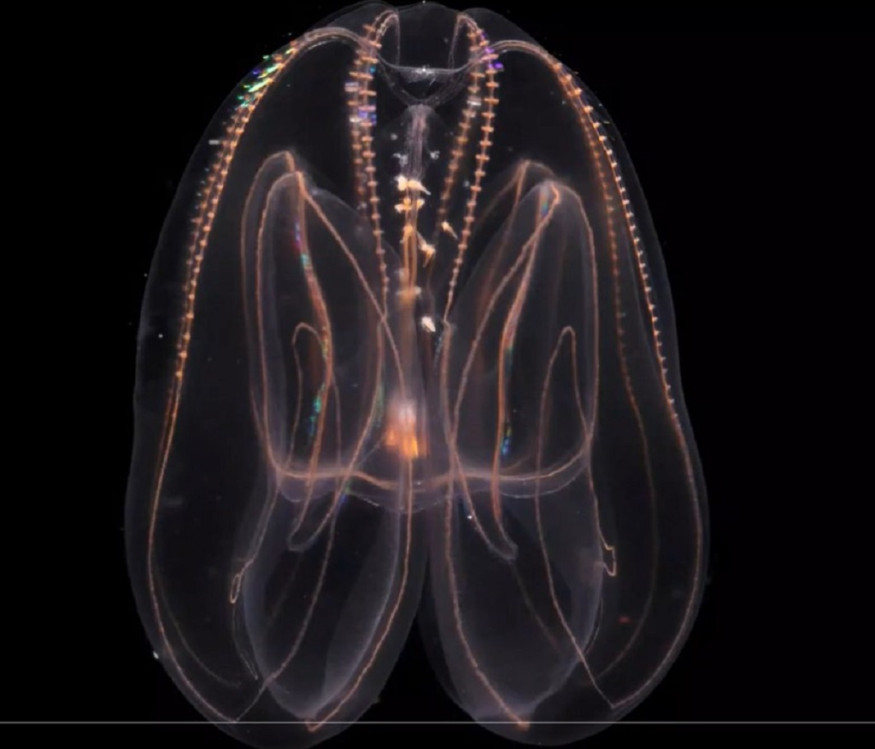
A groundbreaking study has revealed that the Atlantic comb jelly, Mnemiopsis leidyi, known as the "sea walnut," is capable of reversing its life cycle and returning to an earlier life stage, a phenomenon previously thought to be rare among animals.
This discovery makes the comb jelly only the third known animal to exhibit such reverse aging, alongside the "immortal jellyfish" and a few others.
Researchers from the University of Bergen, including marine biologists Joan J. Soto-Angel and Pawel Burkhardt, found that under stressful conditions like food scarcity or injury, adult comb jellies can revert to their larval form. This ability allows the species to survive in harsh environments by adopting the feeding behaviors of younger comb jellies, which have access to different food sources, according to Interesting Engineering.
Soto-Angel described the process as "fascinating," explaining that the adult comb jellies gradually reshaped their bodies and began feeding like larvae, a complete reversal of their normal adult behavior.
READ MORE : Plant-Animal Hybrid Cells That Subsist on Sunlight Could Revolutionize Lab-Grown Meat Production
Comb Jelly's Larval Reversion Offers Insights into Aging
The team's findings suggest that this ability to revert to a larval stage may be a key factor in the comb jelly's resilience and its spread across global waters, especially in areas like the Black and Caspian Seas, where it competes aggressively with native species.
The phenomenon, known as life-cycle plasticity, challenges scientists' understanding of animal development. While most animals follow a traditional life cycle of birth, aging, and death, Mnemiopsis leidyi shows that some species can defy these norms.
Unlike the immortal jellyfish, which undergoes a drastic cellular reorganization to revert to an earlier form, the comb jelly's transformation is less disruptive, preserving its identity while adopting the characteristics of a larva.
This discovery also holds potential for future research in aging and regeneration. As one of the oldest animal lineages, comb jellies could provide valuable insights into the evolution of life-cycle plasticity and the mechanisms behind reverse development.
Burkhardt emphasized the excitement of these findings, stating that they open up new possibilities for understanding how animals adapt to environmental stress and the molecular processes involved in such dramatic changes.
© 2025 ScienceTimes.com All rights reserved. Do not reproduce without permission. The window to the world of Science Times.











